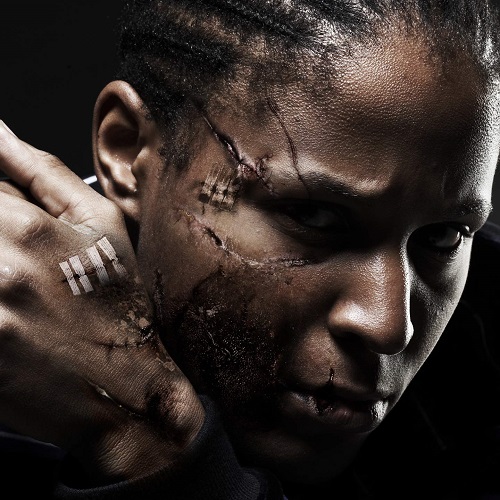The year 2006 is key to Casey. The rapper originally from Rouen has been in for a decade. She built her own place in the French rap universe, through collaborations, and her various contributions to mixtapes or compilations. However, she never delivered any proper record, until that rich year. In 2006, indeed, she releases the Ennemi de l'ordre ("Enemy of Order") maxi single, the retrospective street-CD Hostile au stylo ("Hostile with my Pen"), a colossal project with no less than sixty four tracks, and also her first album.

Titled Tragédie d'une trajectoire ("Tragedy Of A Trajectory"), the latter will strengthen her status as one of the most respected rappers in France; one of those, also, whose reputation goes far beyond the limits of rap music.
With that opus, Casey shows that she's already an old-timer. She is from the past decade. Mostly produced by Hery and Laloo, her music is made of boom bap, with the expected scratches. And her lyrics comply with the French chanson tradition, with their literary turn and their serious messages.
No surprise, considering this, if Cathy Palenne will be invited to Radio France (the French BBC) and spend time with writer Virginie Despentes. On "Je lutte" ("I Fight"), she says that she's a target for the elite, but in reality, that same elite – or more exactly, another subset of the elite – loves her. She delivers what these people expect: outstanding writing skills, which she dedicates to social commentaries.
In the Public Enemy way, the rapper shoots one target after the other: the music industry and the wack rappers on "Pas à vendre" ("Not For Sale"); the police, the judges and the politics on "Qui sont-ils?" ("Who Are They?"); the journalists, the critics, and the mainstream artists on "Une lame dans ma veste" ("A Blade In My Jacket"); and more broadly, the jerks and the idiots on "Mourir con" ("Dying Dumb").
That being said, Casey is not your typical moaning and whining French rapper. She is not only a sermonizer. Besides the expected ego-trips on "Suis ma plume" ("Follow My Quill"), the allegiance to her territory on "Banlieue nord" ("Northern Slums") and the clan spirit on "On ne présente plus la famille" ("No Need To Present The Family"), with Ekoué from La Rumeur, she learned an important trick from US rap: there is no need to be apologetic.
Casey does the total opposite: she strikes back. The wounded animal she describes on the introductive and eponymous "Tragédie d'une trajectoire", doesn't complain much: it rebuffs. She heals humiliation with violent lyrics on "Ma haine" ("My Hatred"), when she portrays her resentment like an old pal. She responds to her troubles through fights on "Je lutte", or threats on "Une lame dans ma veste", "Mourir con", and "Quand les banlieusards sortent" ("When The Slummers Go Out"), a track where the vengeful rapper confirms all the dark fears and fantasies the average citizen likes to entertain about the youngsters from the 'hood.
To express her rage, Casey uses a hostile and surly voice, an asexual posture and, at times, like on "Suis ma plume" and the atrabilious "Qui sont-ils?", the heavy guitar sounds of rock music. The gem on the album, however, doesn't follow that framework. "Chez moi" ("At Home") is a homage to her family land, the French Caribbean Island of Martinique, which she describes in an authentic way, with none of the clichés familiar to the ignorant and patronizing people from mainland France. This track is like the others: it destroys stereotypes. But it is less frontal, explicit and expected than the others. As a result, the diatribe is all the most powerful.
At times on the album, Casey can look a bit too studious. But she will improve overtime. She will let loose, and be more open about her parallel passion for rock music, while staying equally angry and remaining a masterful writer. As she says on the hook of "Tragédie d'une trajectoire", there were small chances that her hatred softens in her old age.
